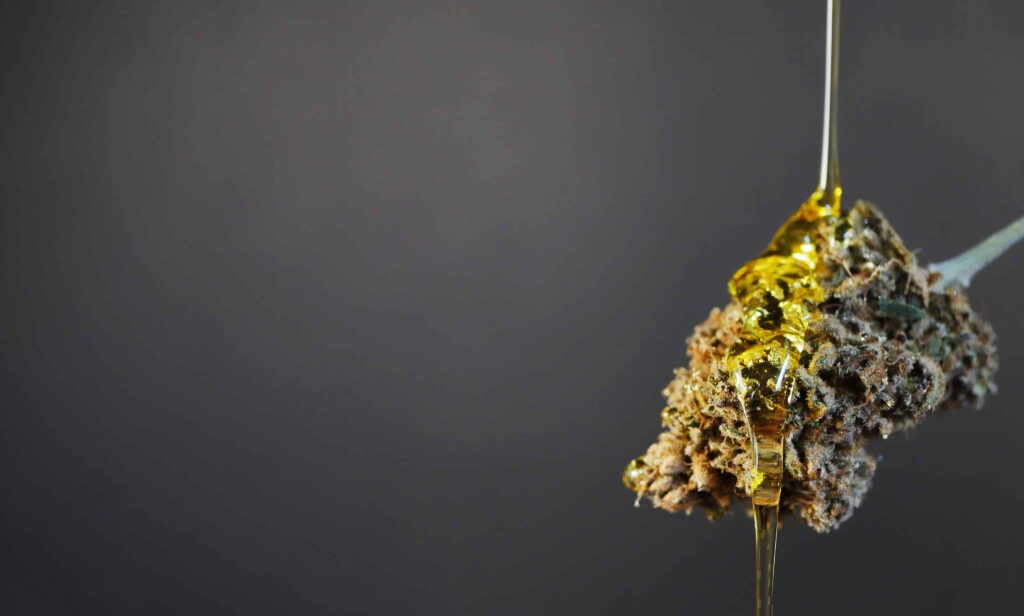
Friday, Oct. 27 was a historic day for cannabis in Georgia and throughout the country, as it was the first day that pharmacists were legally allowed to sell cannabis at the pharmacy counter.
Dr. Ankit Patel was the first pharmacist to begin selling cannabis at his pharmacy, Robins Pharmacy. “It’s awesome. It’s historic,” Patel told CNN. “I’ve been following the laws in Georgia about passing it, and I’ve been excited about this possibility for about four years now. When they finally said independent pharmacies will be able to carry it, I filled out the license form immediately. I knew I had to get this.”
So far, Robins Pharmacy (located in the city of Warner Robins) as well as Omega Pharmacy and Allen Pharmacy Group, were among the first to receive a state license for selling low-THC medical cannabis products, which is defined as less than 5% THC. According to People, there are more than 400 independent pharmacies in Georgia that could apply to be a part of the program.
In order to obtain approval from the state, pharmacies must receive an inspection from the Georgia Drugs and Narcotics Agency, where they examine the pharmacy’s security and interview staff about proper product knowledge and handling.
State law dictates that cannabis products must be kept on shelves along with other prescription medicines, according to Allen Pharmacy Group owner Bill Posey. “Just like all other ‘dangerous’ drugs,” Posey said. “Blood pressure medicine is also considered a ‘dangerous’ drug in this circumstance. Everyday we sell drugs that I would consider more dangerous than medical cannabis.”
Posey’s pharmacy began selling cannabis as of Monday, Oct. 30. “We have already had someone calling, wanting to know when they can come in and make a purchase, so I know there’s a need,” Posey said ahead of the starting sale date.
Posey told CNN that cannabis is a useful replacement for opioids, but the state allows a total of 18 conditions that qualify patients for medical cannabis. This includes patients with severe, terminal, or end stage conditions associated with cancer, Amyotrophic lateral sclerosis, seizure disorders or trauma head injuries, multiple sclerosis, Crohn’s disease, mitochondrial disease, Parkinson’s disease, sickle cell disease, Tourette’s syndrome, autism spectrum disorder, epidermolysis bullosa, Alzheimer’s disease, AIDS, peripheral neuropathy, hospice patients, intractable pain, and post-traumatic stress disorder.
Omega Pharmacy owner Dr. Jordan Day told CNN that her pharmacy will begin selling medical cannabis sometime this week. She also spoke about cannabis as a way to wean patients off of opioids. “We’ll be able to show them the products, hopefully give them a little bit of information, find out what they are wanting to use it for,” Day said, adding that medical cannabis could be useful for replacing general pain, sleep, and anxiety medication. “With the pharmacist and the doctor involved, that really is the best thing that the patient could have,” Day said.
Posey also explained that pharmacies like his own are independent, and he’s able to spend more time with patients that he’s served regularly for many years. “We don’t just give people medication and say, ‘OK, you’re done.’ We like to make sure that we always treat everyone who walks in like family,” Posey said.
Patel informed all of his pain patients the benefits of medical cannabis. “Right now, we’re going through an opioid shortage, and I talked to all my pain medicine patients about it, and I let them know that if this is something that they’re interested in, it’s legal in the state of Georgia,” Patel said. “You know, it’s much more natural, [a] less addicting option than opioids.”
On Oct. 20, one week prior to the official launch date, Georgia Access to Medical Cannabis Oil Commission chair Andrew Turnage said that this will increase accessibility for medical cannabis like never before. “It’s just a 15-to-20-minute drive from where patients are located across the state. That’s going to be so much easier for them to get access,” Turnage said.
Gov. Brian P. Kemp signed House Bill 324, also called “Georgia’s Hope Act,” in April 2019, and it took effect starting in July 2019. “Over the years, I’ve met with children who are battling chronic, debilitating diseases. I’ve heard from parents who are struggling with access and losing hope,” Kemp said in April 2019. “This compromise legislation is carefully crafted to provide access to medical cannabis oil to those in need. This is simply the right thing to do.”
The law directs control of cannabis license regulation, cultivation, production, manufacturing, and sales of low-THC oil to the Georgia Access to Medical Cannabis Commission. In November of 2019, seven members of the commission were appointed. However, it wasn’t until July 2021 when the state revamped its original medical cannabis program and the commission approved six companies to sell cannabis.
Earlier this month, Georgia officials reported that its medical cannabis patient number has been updated and is much less than previously thought. Originally, they believed there were more than 50,000 patients, when in reality there are roughly 14,000, which was due to “anomalies” such as the system not updating when patient cards expired or patients passed away after 2015.
Read full article on High Times

